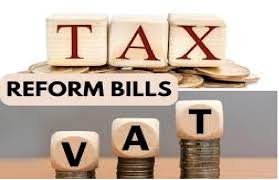By Atoyebi Nike
The Chairman of the Presidential Fiscal Policy and Tax Reforms Committee, Mr. Taiwo Oyedele, has announced a wide-ranging package of 50 tax exemptions and reliefs aimed at reducing financial pressure on low-income earners, average taxpayers, and small businesses. The reforms will come into force on January 1, 2026, under Nigeria’s updated fiscal framework.
In a statement released on his X handle on Monday, Oyedele described the changes as one of the most people-centred tax reforms in recent years. He said the measures focus on fairness and simplicity while supporting economic productivity.
According to him, individuals earning the national minimum wage or less will be fully exempt from tax, while annual incomes up to N1.2 million will attract no tax at all. Lower PAYE rates will apply to those earning up to N20 million, and gifts and donations will now be exempt.
Pension contributions, health insurance, and National Housing Fund payments remain deductible. Rent relief of up to N500,000, interest on owner-occupied home loans, and life insurance premiums will continue to qualify for deductions. Pensions, gratuities, and retirement benefits remain tax-free, while compensation for job loss up to N50 million will not be taxed.
Other reliefs include exemptions on sales of owner-occupied homes, personal effects up to N5 million, and up to two private car sales per year. Share gains below N150 million annually, or N10 million per transaction, will be exempt, with additional relief for reinvested proceeds.
On Company Income Tax, small firms with turnover below N100 million and assets under N250 million will pay 0% CIT. Eligible startups will also be exempt, while manufacturers, agricultural firms, and small businesses will benefit from withholding tax exemptions. Agricultural ventures will enjoy a five-year tax holiday covering crop, livestock, and dairy operations.
Basic food, rent, educational materials, pharmaceuticals, and healthcare services will attract 0% or exempt VAT status. Small firms earning less than N100 million will not charge VAT. Items such as agricultural inputs, disability aids, baby products, sanitary towels, electric vehicles and parts, and humanitarian supplies will also be VAT-exempt.
Stamp duties will no longer apply to electronic transfers below N10,000, salary payments, intra-bank transfers, and transactions involving government securities or shares.
Oyedele also launched a public awareness initiative encouraging citizens to nominate social media educators for an “Influencing for Good” programme to counter misinformation about the reforms.
In June, President Bola Tinubu signed four major tax reform bills into law, covering Nigeria’s tax framework, administration, revenue service structure, and joint revenue board operations.
